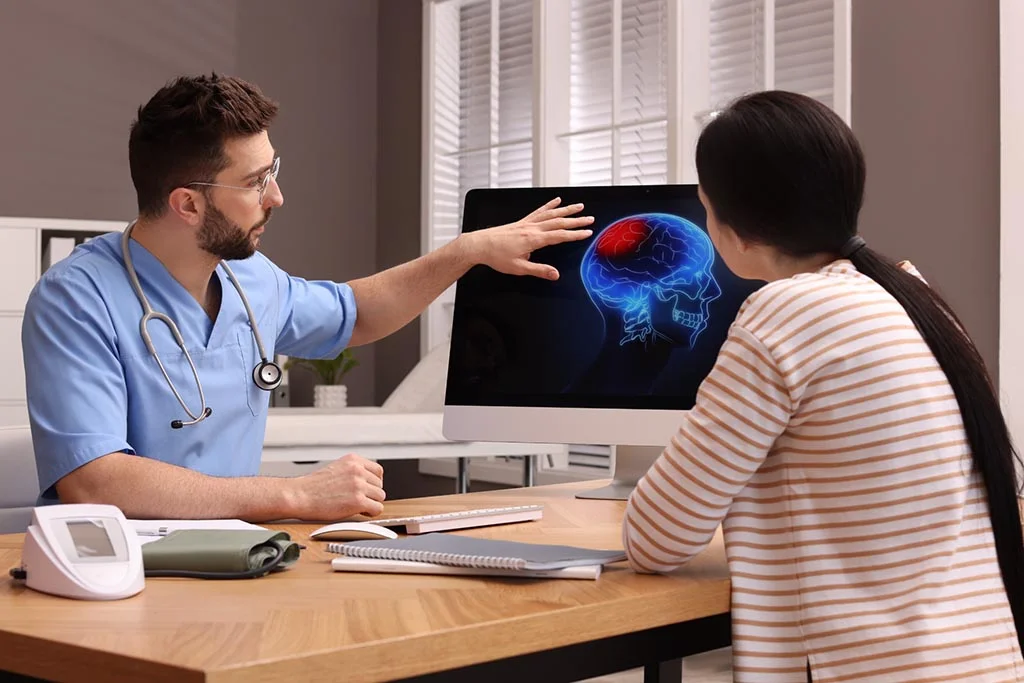According to the World Health Organization, an estimated 50 million people live with epilepsy worldwide.
Symptoms
Recurrent seizures are the main symptom and can affect people in many ways depending on which part of your brain is affected.
Epilepsy knows no gender, race, age or ethnicity. Any woman or man can develop this condition. Having one seizure doesn’t mean you have epilepsy, but having at least two seizures without a trigger at least 24 hours apart is an indication of the possible onset of epilepsy.
The general seizure classification of focal seizures or generalized doctors is based on where and how the abnormal brain activity starts. After an attack, you may not remember it or feel mildly unwell for a few hours.
Most common symptoms include:
- Losing consciousness or perception
- Loss of muscle tone, twitching hands and legs
- Muscle stiff
- Temporary confusion
- Staring blankly in space
- Temporary confusion
- Upset stomach
- Anxiety, fear, or Deja vu
- Changes in vision, hearing, taste, smell
- Feeling numb
- Tingling sensations
- Problems with talking and understanding
- Faster heart rate
- Collapse
Diagnosis
This condition can develop at any age. Meanwhile, epilepsy diagnosis usually occurs at a very young age or after 60 years old.
When consulting with a doctor – neurologist, the diagnosis of epilepsy will not be made in one visit to the doctor since diagnosing epilepsy requires patience. In the meantime, avoid activities that could put you at risk because of the possibility of the seizures returning.

It can be challenging to diagnose epilepsy quickly because fainting, panic attacks, or migraines can cause symptoms similar to the condition.
The doctor will run a series of tests so they can make a diagnosis. The tests that need to be performed to find out what type of epilepsy you might have are:
- Blood tests
- Neuropsychological tests
- Electroencephalogram (EEG)
- High-density EEG
- Magnetic resonance imaging (MRI)
- Functional MRI (fMRI)
- Positron emission tomography – PET scan
- Computerized tomography (CT) scan
- Single-photon emission computerized tomography (SPECT)
Treatment
Treatment can help people with this condition have fewer or no seizures. There are several ways to get epilepsy treatment after being diagnosed, such:
- Anti-epileptic medications
- Particular diet therapy for epilepsy, Ketogenic diet included
- Epilepsy surgery (resective and disconnective)
Treatment can help people with epilepsy have fewer seizures or be seizure-free. If the epileptic seizures go away over time, treatment could stop, although some people need lifelong treatment.
If the triggering seizures are known to the patient, they have more control to avoid them and may not need treatment. For any questions, epilepsy specialists are available to provide information on the treatments available and the best.
There is no cure for epilepsy, but different types of seizures can be controlled with medication and some other developed health strategies.
Living with Epilepsy
People with epilepsy need support that has to emphasize in their everyday activities. For example, in the most ordinary and mundane things like driving a car, work, school, transportation, and travel, the person’s lifestyle and independence.
At Unique Community Services, we understand the complexities of epilepsy. Therefore, we offer complex care and support needs, at home and in the community. Our compassionate support workers and nurses meet the individual needs of the client, from 24/7 care to shorter transition packages.
Our professionals encourage independent living for a truly meaningful life with their knowledge and support. And that means everything to us.
Challenges
Depending on the challenges the person faces, independent living is achievable. Some people live alone or with their immediate family members; others require assisted living that needs to get structured according to their needs.
Being epilepsy diagnosed brings awareness of the environment they live in and its impact. It results in:
- Type, frequency, and severity of the seizure
- Medication side effects
- Treatment side effects
- Seizure aftereffects
- Other neurological challenges
- Development challenges
- Financial stability
- Cost of living

Controlling your seizures
It is important to keep seizures under control as they can be dangerous. Measures that can help are, therefore:
- Take medicine
- Seizure detection and avoidance of seizure triggers
- Have regular reviews
Staying safe
If your seizures aren’t well controlled, there are things you can do to reduce the risk.
If seizures are not well controlled, they can put the person at risk of injury at home, during sports and leisure activities, and while driving.
Epilepsy and pregnancy
A woman’s body reacts differently to pregnancy. A diagnosis of epilepsy can raise particular concerns. Now, most women give birth to healthy babies, and there is no reason why one should not expect a healthy pregnancy. However, there are cases when pregnancy requires special care.
In most women dealing with this condition, seizures remain constant. For some, seizures may become less frequent. Pregnancy can increase the number of seizures in women who do not take prescribed medications or suffer from sleep deprivation.
Risk factors are present as some of the medications used can lead to infertility.
Causes of Epilepsy
It can’t be identified what causes half of the people to be diagnosed with epilepsy. But some factors can contribute to seizure development, such as the following ones:
- Genetic influence
- Traumatic brain injury
- Head trauma
- Very high fever
- Brain abnormalities
- A brain tumour or cyst
- Lack of oxygen to the brain cells
- Infections
- Serious illness
- Dementia, Alzheimer’s disease included
- Substance abuse or alcohol abuse
- Prenatal injury
- Malformation of the brain
- Developmental or genetic disorders (such as autism)
- Neurological diseases
- Brain scarring after a brain injury
- HIV and AIDS and meningitis
